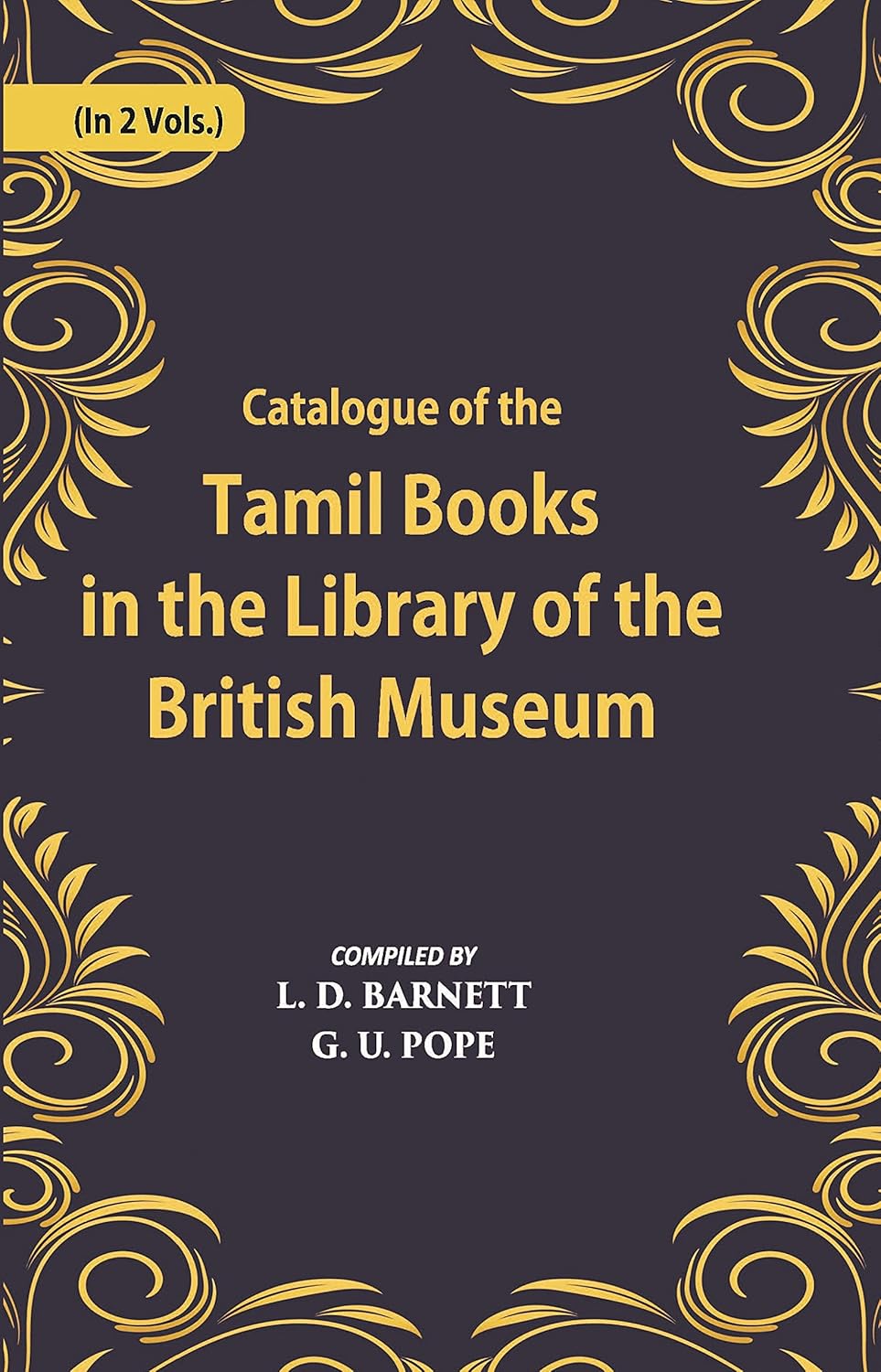A Catalogue Of The Tamil Books In The Library Of The British Museum - HB , VOL -1
A Catalogue Of The Tamil Books In The Library Of The British Museum - HB , VOL -1
Couldn't load pickup availability
About the Book:-This rare work discusses Tamil literature thoroughly, ordered by the Library of the British Museum. Of all the literatures of India, with the single exception of the Sanskrit, the Tamil is the richest, the oldest, and the most various. It is thus most completely representative of that ancient Dravidian culture which preceded the civilisation of the conquering Aryan immigrants, and doubtless contributed much to the literary and social development of the latter. Hence the oldest surviving works of Tamil literature bear a peculiar character; though it would perhaps be too bold to assert them to be wholly independent of Sanskritic influences, they are both in vocabulary and in literary form distinctly different from the typical products of the classical Sanskrit literature. Tradition traces back the origin of extant Tamil literature and science to the sage Agastyar (Agattiyar), who plays a prominent part in ancient Sanskrit mythology. A grammar of the Tamil language bearing his name, the Agattiyam, was formerly extant, which apparently was based upon the Paninian school of Sanskrit grammar. In religious poetry Tamil literature is remarkably rich. The worship of Siva seems to have been indigenous to the South, though doubtless it has been locally influenced in various degrees by the Saiva cults of the North. The book is the product of extensive research and study of this language. About the Author:-Lionel David Barnett CB FBA (21 October 1871 – 28 January 1960) was an English orientalist. The son of a Liverpool banker, Barnett was educated at Liverpool High School, Liverpool Institute, University College, Liverpool and Trinity College, Cambridge, where he took a first class degree in classics and was three times a winner of a Browne medal. In 1899, he joined the British Museum as Assistant Keeper in the Department of Oriental Printed Books and Manuscripts. In 1908 he became Keeper, remaining in the post until his retirement in 1936
Share

